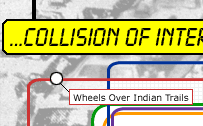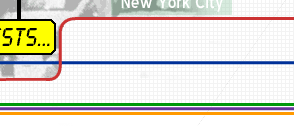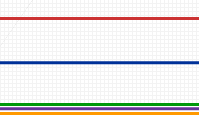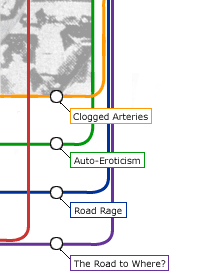



Situationist Theses on Traffic || How Traffic Destroys the Eco-City || Killed by Automobile || Excess
The Social Ideology of the Motorcar
by Andre Gorz
If the car is to prevail, there's still one solution: get rid of the cities. That is, string them out for hundreds of miles along enormous roads, making them into highway suburbs. That's what's been done in the United States. Ivan Illich sums up the effect in these startling figures: "The typical American devotes more than 1500 hours a year (which is 30 hours a week, or 4 hours a day, including Sundays) to his [or her] car. This includes the time spent behind the wheel, both in motion and stopped, the hours of work to pay for it and to pay for gas, tires, tolls, insurance, tickets, and taxes .Thus it takes this American 1500 hours to go 6000 miles (in the course of a year). Three and a half miles take him (or her) one hour. In countries that do not have a transportation industry, people travel at exactly this speed on foot, with the added advantage that they can go wherever they want and aren't restricted to asphalt roads."
It is true, Illich points out, that in non-industrialised countries travel uses only 3 to 8% of people's free time (which comes to about two to six hours a week). Thus a person on foot covers as many miles in an hour devoted to travel as a person in a car, but devotes 5 to 10 times less time in travel. Moral: The more widespread fast vehicles are within a society, the more time - beyond a certain point- people will spend and lose on travel. It's a mathematical fact.
The reason? We've just seen it: The cities and towns have been broken up into endless highway suburbs, for that was the only way to avoid traffic congestion in residential centres. But the underside of this solution is obvious: ultimately people can't get around conveniently because they are far away from everything. To make room for the cars, distances have increased. People live far from their work, far from school, far from the supermarket -- which then requires a second car so the shopping can be done and the children driven to school. Outings? Out of the question. Friends? There are the neighbours.. .and that's it. In the final analysis, the car wastes more time than it saves and creates more distance than it overcomes. Of course, you can get yourself to work doing 60 mph, but that's because you live 30 miles from your job and are willing to give half an hour to the last 6 miles. To sum it all up: "A good part of each day's work goes to pay for the travel necessary to get to work." (Ivan Illich).
Maybe you are saying, "But at least in this way you can escape the hell of the city once the workday is over." There we are, now we know: "the city," the great city which for generations was considered a marvel, the only place worth living, is now considered to be a "hell." Everyone wants to escape from it, to live in the country. Why this reversal? For only one reason. The car has made the big city uninhabitable. It has made it stinking, noisy, suffocating, dusty, so congested that nobody wants to go out in the evening anymore. Thus, since cars have killed the city, we need faster cars to escape on superhighways to suburbs that are even farther away. What an impeccable circular argument: give us more cars so that we can escape the destruction caused by cars.
From being a luxury item and a sign of privilege, the car has thus become a vital necessity. You have to have one so as to escape from the urban hell of the cars. Capitalist industry has thus won the game: the superfluous has become necessary. There's no longer any need to persuade people that they want a car; it's necessity is a fact of life. It is true that one may have one's doubts when watching the motorised escape along the exodus roads. Between 8 and 9:30 a.m., between 5:30 and 7 p.m., and on weekends for five and six hours the escape routes stretch out into bumper-to-bumper processions going (at best) the speed of a bicyclist and in a dense cloud of gasoline fumes. What remains of the car's advantages? What is left when, inevitably, the top speed on the roads is limited to exactly the speed of the slowest car?
Fair enough. After killing the city, the car is killing the car. Having promised everyone they would be able to go faster, the automobile industry ends up with the unrelentingly predictable result that everyone has to go as slowly as the very slowest, at a speed determined by the simple laws of fluid dynamics. Worse: having been invented to allow its owner to go where he or she wishes, at the time and speed he or she wishes, the car becomes, of all vehicles, the most slavish, risky, undependable and uncomfortable. Even if you leave yourself an extravagant amount of time, you never know when the bottlenecks will let you get there. You are bound to the road as inexorably as the train to its rails. No more than the railway traveller can you stop on impulse, and like the train you must go at a speed decided by someone else. Summing up, the car has none of the advantages of the train and all of its disadvantages, plus some of its own: vibration, cramped space, the danger of accidents, the effort necessary to drive it.
And yet, you may say, people don't take the train. Of course! How could they? Have you ever tried to go from Boston to New York by train? Or from Ivry to Treport? Or from Garches to Fountainebleau? Or Colombes to l'Isle-Adam? Have you tried on a summer Saturday or Sunday? Well, then, try it and good luck to you! You'll observe that automobile capitalism has thought of everything. Just when the car is killing the car, it arranges for the alternatives to disappear, thus making the car compulsory. So first the capitalist state allowed the rail connections between the cities and the surrounding countryside to fall to pieces, and then it did away with them. The only ones that have been spared are the high-speed intercity connections that compete with the airlines for a bourgeois clientele. There's progress for you!
The truth is, no one really has any choice. You aren't free to have a car or not because the suburban world is designed to be a function of the car -- and, more and more, so is the city world. That is why the ideal revolutionary solution, which is to do away with the car in favour of the bicycle, the streetcar, the bus, and the driverless taxi, is not even applicable any longer in the big commuter cities like Los Angeles, Detroit, Houston, Trappes, or even Brussels, which are built by and for the automobile. These splintered cities are strung out along empty streets lined with identical developments; and their urban landscape (a desert) says, "These streets are made for driving as quickly as possible from work to home and vice versa. You go through here, you don't live here. At the end of the workday everyone ought to stay at home, and anyone found on the street after nightfall should be considered suspect of plotting evil." In some American cities the act of strolling in the streets at night is grounds for suspicion of a crime.
So, the jig is up? No, but the alternative to the car will have to be comprehensive. For in order for people to be able to give up their cars, it won't be enough to offer them more comfortable mass transportation. They will have to be able to do without transportation altogether because they'll feel at home in their neighbourhoods, their community. their human-sized cities, and they will take pleasure in walking from work to home-on foot, or if need be by bicycle. No means of fast transportation and escape will ever compensate for the vexation of living in an uninhabitable city in which no one feels at home or the irritation of only going into the city to work or, on the other hand, to be alone and sleep.
"People," writes Illich, "will break the chains of overpowering transportation when they come once again to love as their own territory their own particular beat, and to dread getting too far away from it." But in order to love "one's territory" it must first of all be made liveable, and not trafficable. The neighbourhood or community must once again become a microcosm shaped by and for all human activities, where people can work, live, relax, learn, communicate, and knock about, and which they manage together as the place of their life in common. When someone asked him how people would spend their time after the revolution, when capitalist wastefulness had been done away with, Marcuse answered, "We will tear down the big cities and build new ones. That will keep us busy for a while."
These new cities might be federations of communities (or neighbourhoods) surrounded by green belts whose citizens -- and especially the schoolchildren-will spend several hours a week growing the fresh produce they need. To get around everyday they would be able to use all kinds of transportation adapted to a medium-sized town: municipal bicycles, trolleys or trolley-buses, electric taxis without drivers. For longer trips into the country, as well as for guests, a pool of communal automobiles would be available in neighbourhood garages. The car would no longer be a necessity. Everything will have changed: the world, life, people. And this will not have come about all by itself.
Meanwhile, what is to be done to get there? Above all, never make transportation an issue by itself. Always connect it to the problem of the city, of the social division of labour, and to the way this compartmentalises the many dimensions of life. One place for work, another for "living," a third for shopping, a fourth for learning, a fifth for entertainment. The way our space is arranged carries on the disintegration of people that begins with the division of labour in the factory. It cuts a person into slices, it cuts our time, our life, into separate slices so that in each one you are a passive consumer at the mercy of the merchants, so that it never occurs to you that work, culture, communication, pleasure, satisfaction of needs, and personal life can and should be one and the same thing: a unified life, sustained by the social fabric of the community.
from Le Sauvage September-October 1973
Back to top